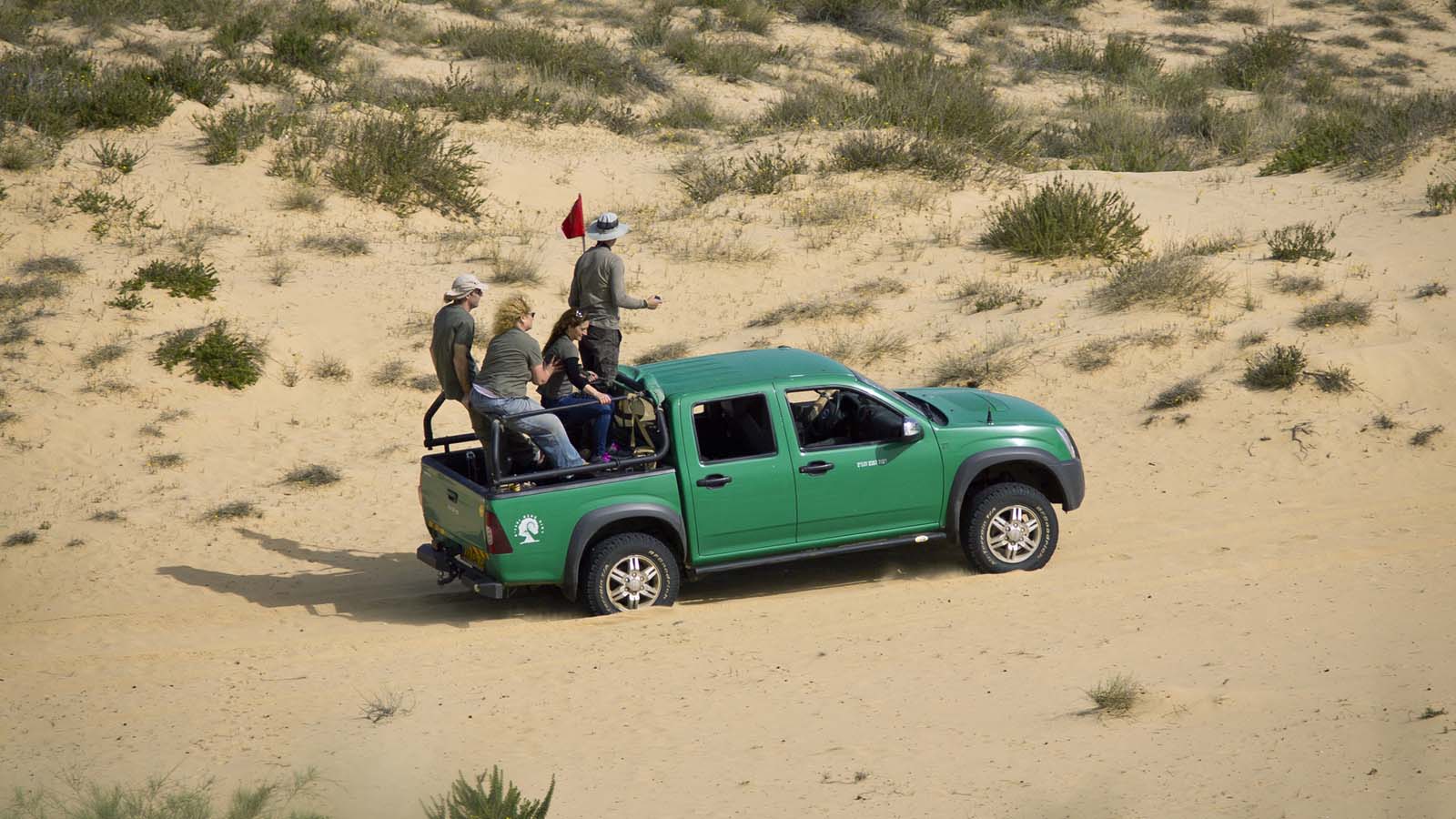Evyatar Cohen fulfilled his dream of turning the Hinnom Valley, south of Jerusalem’s old city, into a blossoming Garden of Eden. Guy defends the creatures of the sea from illegal fishing. Jamil educates fellow Bedouins about protecting the environment. Ronit believes that true change starts at kindergarten. The workers of the Nature and Parks Authority, whose tireless toil, seldom in the spotlight, preserves the incredible plant and animal life of Israel’s wilds for all of us, invite you into their parks.
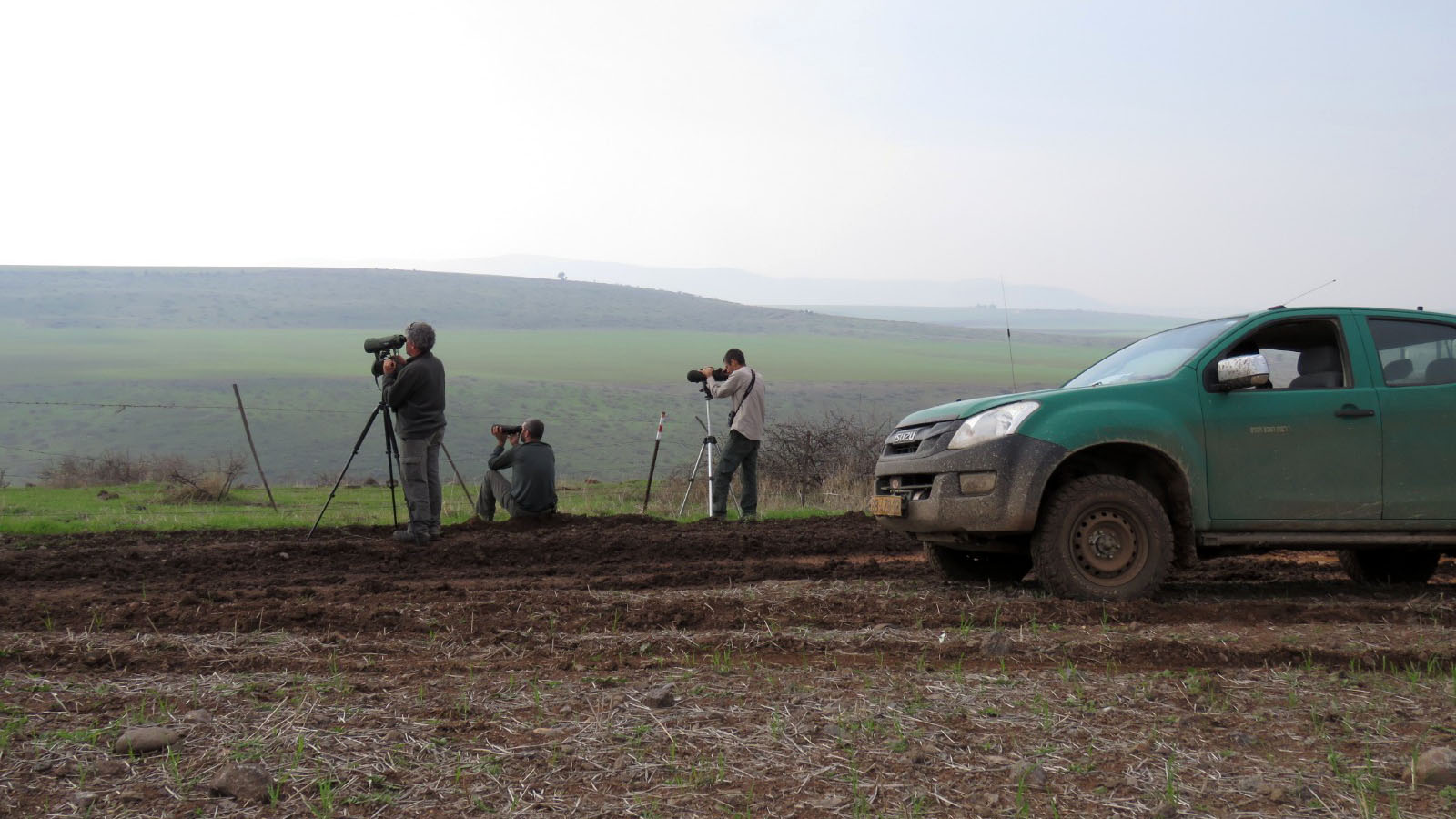
“The Nature and Parks Authority is at the same time an organization that greets the public with open arms and a smile, while also prosecuting lawbreakers,” explains Evyatar Cohen, the authority’s Jerusalem district chief. “It’s a complicated combination, one moment you’re smiling at people and the next you’re interrogating them. One moment you’re working on conservation and advocacy, and the next you find yourself in a sewage tunnel, preventing a building contractor from disposing of waste illegally, or investigating the body of a gazelle that was shot simply because somebody felt like it."
"There is a whole group of people here working in very tough conditions – in the heat and cold, rain and snow, occasionally having things thrown at them.” adds Cohen.
Despite the difficulties and complications, the rangers who spoke with Davar reported a deep sense of fulfillment that stems from their daily encounters with nature, and the potential for instilling profound cultural changes regarding its protection.
How Hell Became Heaven
Evyatar Cohen, 61, told us how one moment of persistence nearly twenty years ago led to the transformation of an entire region. “In the summer of 2000, three months after I started working at the Nature and Parks Authority in Jerusalem, I had just left an evening meeting and was debating whether to drive straight home, half an hour away, or go through the Hinnom Valley. At that time, the Hinnom Valley lived up to its name – Gehinnom [Hebrew for “hell”]. It was a place where everyone threw their garbage, and sewage flowed freely. I knew that if I went by, I would catch one of the polluters.”
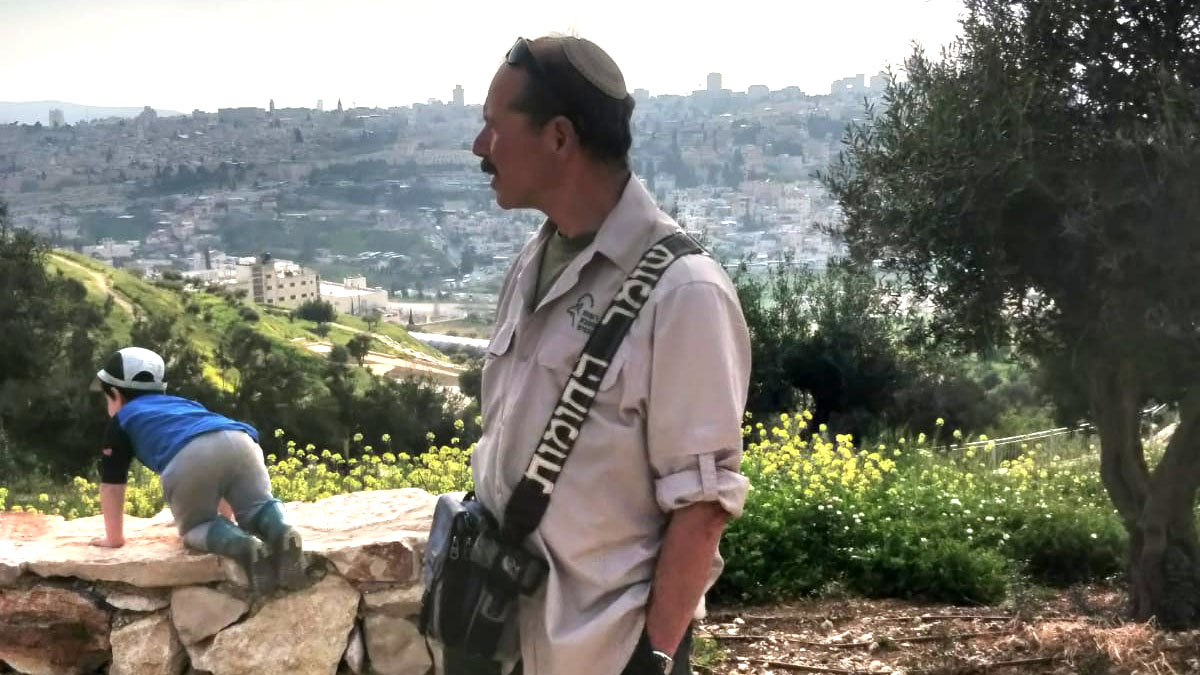
Cohen decided to go past “Hell Valley” and found himself in a scene plucked straight from a Hollywood thriller. “As I drive through, I see lights above the cliff edge, where there are burial sites from the First and Second Temple periods. I radio in to my manager to tell him what’s happening, and he gives me the go-ahead. I stop the car, and see a tractor digging at the entrance to the burial cave. I come forward and present myself: ‘I’m a ranger from the Nature and Parks Authority.’ In less than two minutes I’m surrounded by more than ten guys. They can’t believe that someone from the world of law enforcement has actually come down there, and is telling them that what they’re doing is forbidden."
The situation deteriorates very quickly. "I understood that they were planning on throwing me off the cliff, with my car or without it. I alerted the police. They took their time getting there. I called again and they told me that they won’t enter the area without backup from the Border Police. It dragged on and on, every minute seemed an eternity. But I held firm. Eventually the Border Police arrived, and that became the very first enforcement action in the Hinnom Valley.”
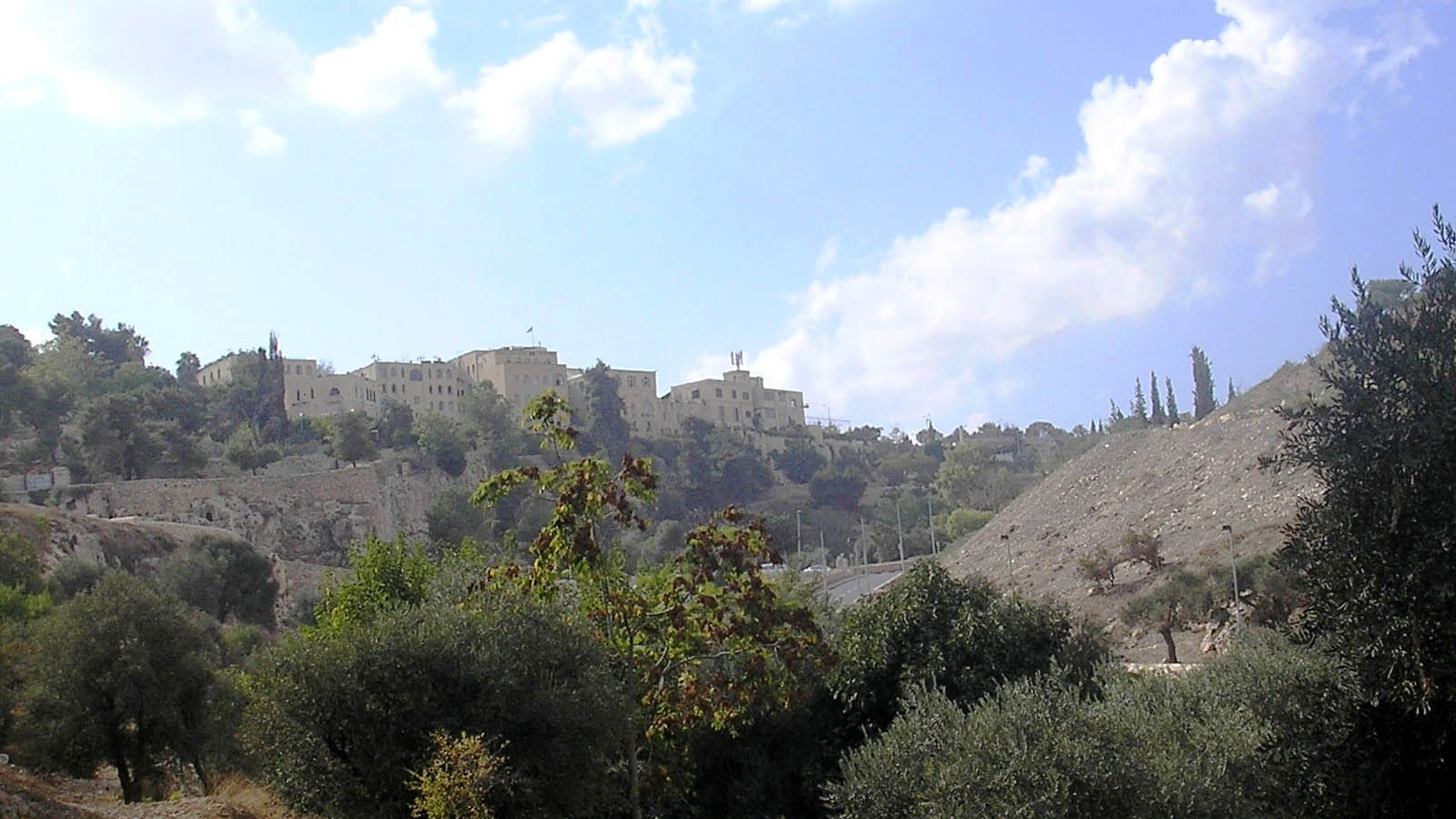
Following the incident, Cohen and other rangers led a systematic effort to increase enforcement in the area, which eventually led to its physical transformation. “After a lengthy process, the land was rehabilitated,” Cohen says. “Thousands of cubic meters of trash, mainly construction waste, were removed. It was a cooperative effort with many other organizations, but they were all despondent and nobody wanted to touch the area, and we came in and brought the understanding that that’s not on, and that we need to be insistent and motivated. Somebody needed to jump into the deep end, somebody with the awareness and the willpower to say ‘I’m not afraid, this is important.’"
Today, says Cohen, "The area looks amazing, it’s now part of the Jerusalem trail which goes all around the city and includes a bike trail.”
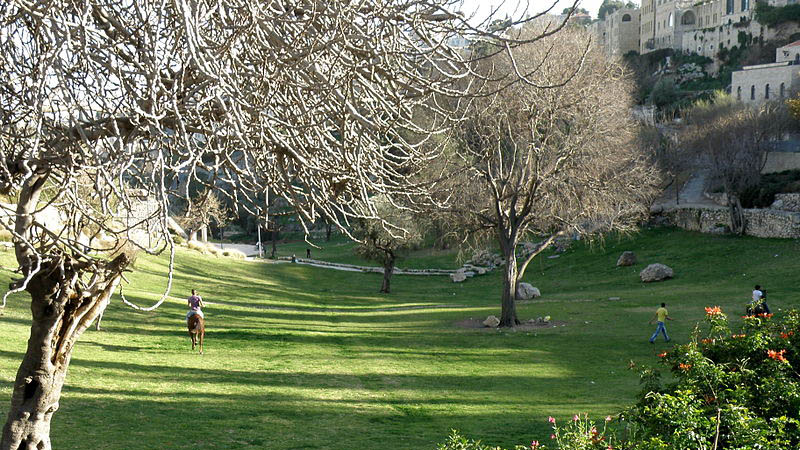
Fishermen who used to curse us now sit down for coffee with us
Guy Levin, 29, from Ramat Hasharon, has worked for the past year as the director of the Maritime Department in the authority’s central district. He is responsible for protecting the delicate ecological balance in all of Israel’s coastal waters – from Hadera in the North, down to Gaza in the South. This involves battling illegal fishing.
“We work around the clock. There are no shifts or a ‘set’ schedule,” says Levin. “Last week, around one o’clock in the middle of the night, maritime police spotted a boat off the coast of Netanya, alongside two men in the water with scuba gear. The police went over to perform a license check, and saw that there were fish in the boat. In Israel, it’s illegal to fish with oxygen tanks and a spear gun. Only free diving,” he explains.
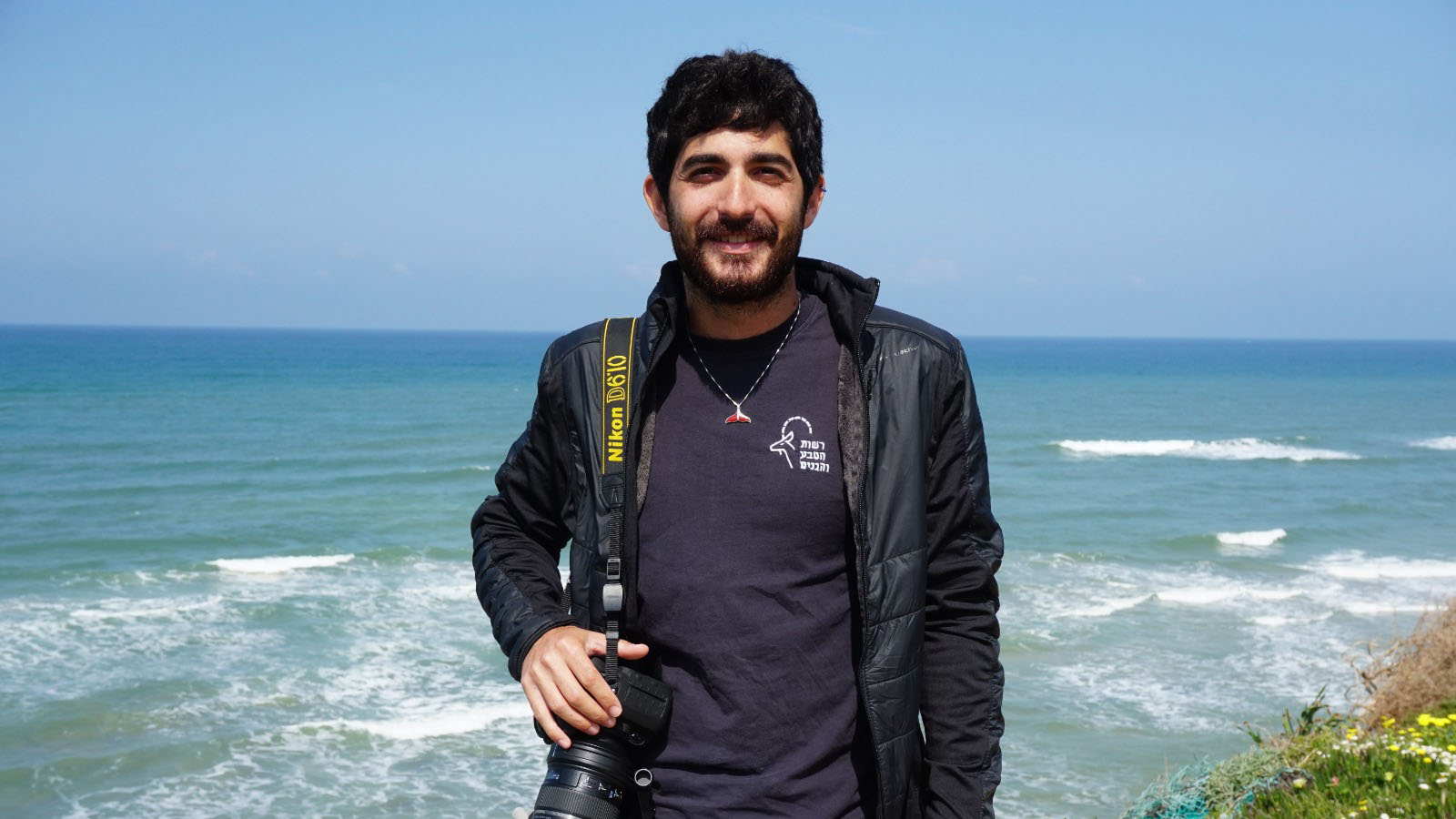
“Maritime police called us and reported the fishing boat. I asked them to map the point on the radar. The police brought the suspects into shore, and our team came down to question them. The thing is, they came to shore without the fish or their gear, and denied that they were even fishing. We didn’t give up. The next morning, we went out to the coordinates that the police gave us. We did a search dive to look for the equipment that we suspected they left behind under the water. A second before our tanks ran out of air, we found weights and other dive gear. We found the ‘smoking gun,’ the criminal evidence of the incident, and we were able to connect the suspects to the illegal fishing.”
Through advocacy and personal meetings we make sure that fishermen know the law: what they can and can’t do, and why the law exists.
People used to make a living from this fishing method, which harms nature,” Levin explains. “We, the unit responsible for marine nature reserves, were also given the responsibility for overseeing fishing. We set ourselves the goal of eliminating the phenomenon, and it has been drastically reduced. I have jurisdiction over all of Israel’s waters, and that gives us more ability to protect nature.”
Levin explains that his success in enforcing the law in an area that had been unregulated for many years is dependent on advocacy and education: “When you enter into an area of enforcement that has basically been untouched for seventy years, of course there are going to be complications, especially when you are talking about people whose livelihoods are threatened. Until we came on the scene, the professional fishermen almost never came across enforcers of fishing law. In the long run, it’s to their benefit that there will be more fish in the sea, but in the short term they feel they’ve taken a hit. Many of our encounters involved cursing and threats, and even violence. But overall, it’s pleasing to see the change, because we are managing, through advocacy and one-on-one meetings, to make sure that the fishermen know the laws: what they can and can’t do, and why the law exists in the first place."
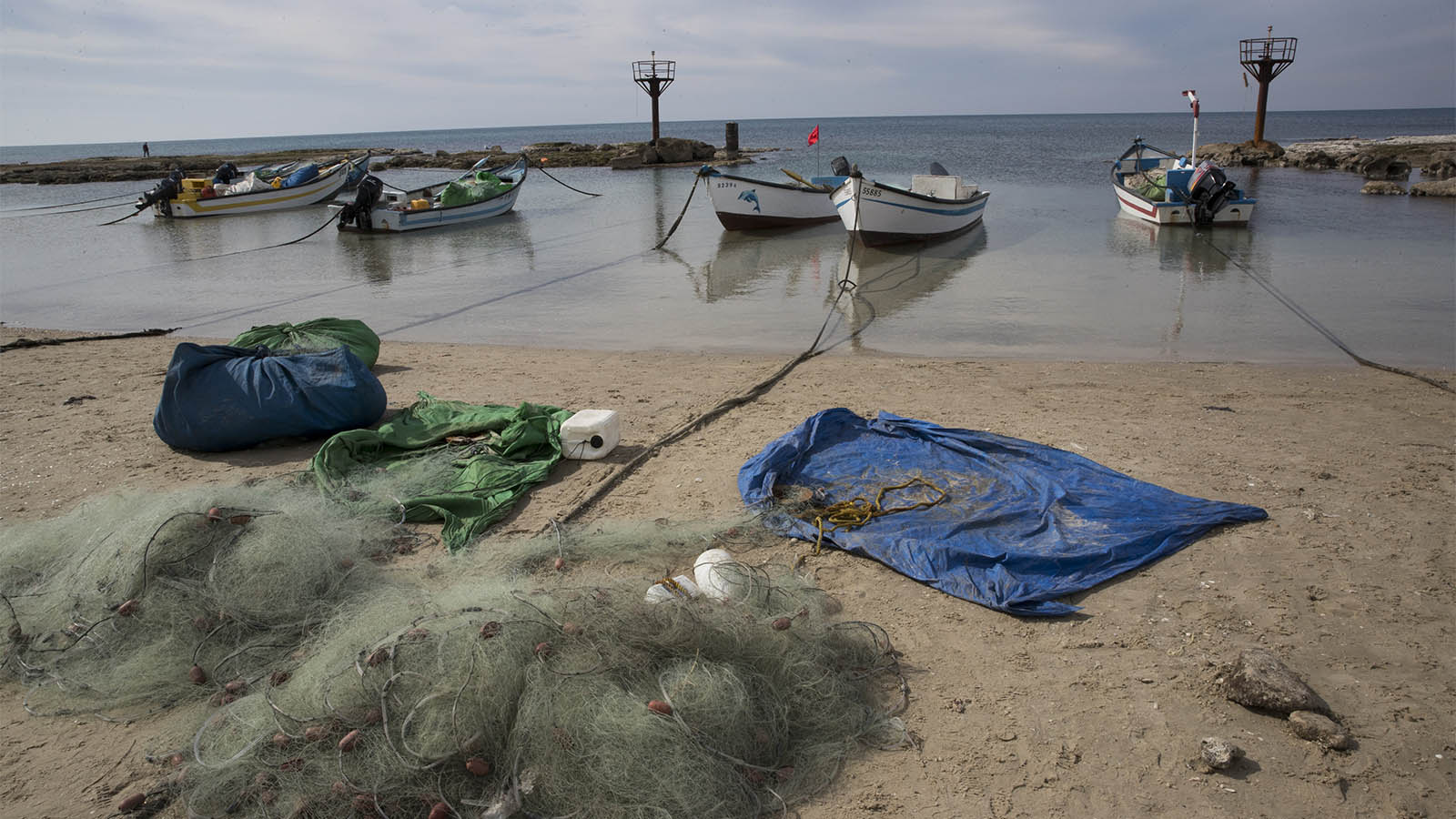
"We feel a big change in the way the fishermen relate to us, and they are more appreciative of the work that we do for the fishing industry in Israel. People who used to curse us now sit down for coffee with us, and report infractions." Accordong to Levin, all the hard work is making a difference. "It’s hard to say for sure, but there is a sense that the number of fish has increased.”
Levin’s love affair with the sea began when he was just a young boy. He is glad to say that his job allows him to live it out every day. “Between all the hard work and the supervision, you come across animals like pods of dolphins, sea turtles, sea birds, things that people don’t ordinarily get to see. We see sunrises and sunsets, and the entire team is made up of people who love the sea and nature, and do what they do from the heart. It’s very satisfying.”
The man who lives in nature and has devoted his life to protecting it
Jamil al-Atrash, 38, finds himself deep in the Israeli backcountry even after hours as a ranger in the southern Judean Desert for the Nature and Parks Authority. He lives with his family near the permanent Bedouin village of Moleda in the arid Negev desert, home to the al-Atrash clan.
“I started working with the Authority as a guard for the Ein Gedi nature reserve [alongside the Dead Sea]. There I was exposed to the wonders of nature, and how the Authority tries to safeguard it. I really love my work. From there I moved up the ranks. I live immersed in Israel’s desert backlands, with a Bedouin clan, but my work at the authority is completely different. You are exposed to so many things that are invisible from an outsider’s perspective.”
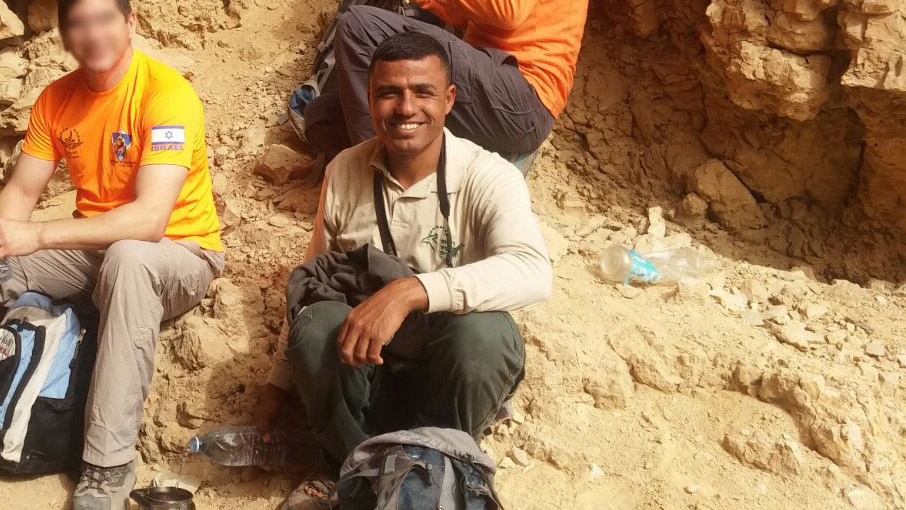
One of the major challenges that al-Atrash took upon himself was to pioneer a shift in Bedouin society to transform attitudes about the natural environment. “As someone who grew up within the tribe, unfortunately I can say that awareness of nature conservation is almost non-existent,” he explains. “Though Bedouin people live in nature, there isn’t enough consideration of the damage caused by things like trash and hunting."
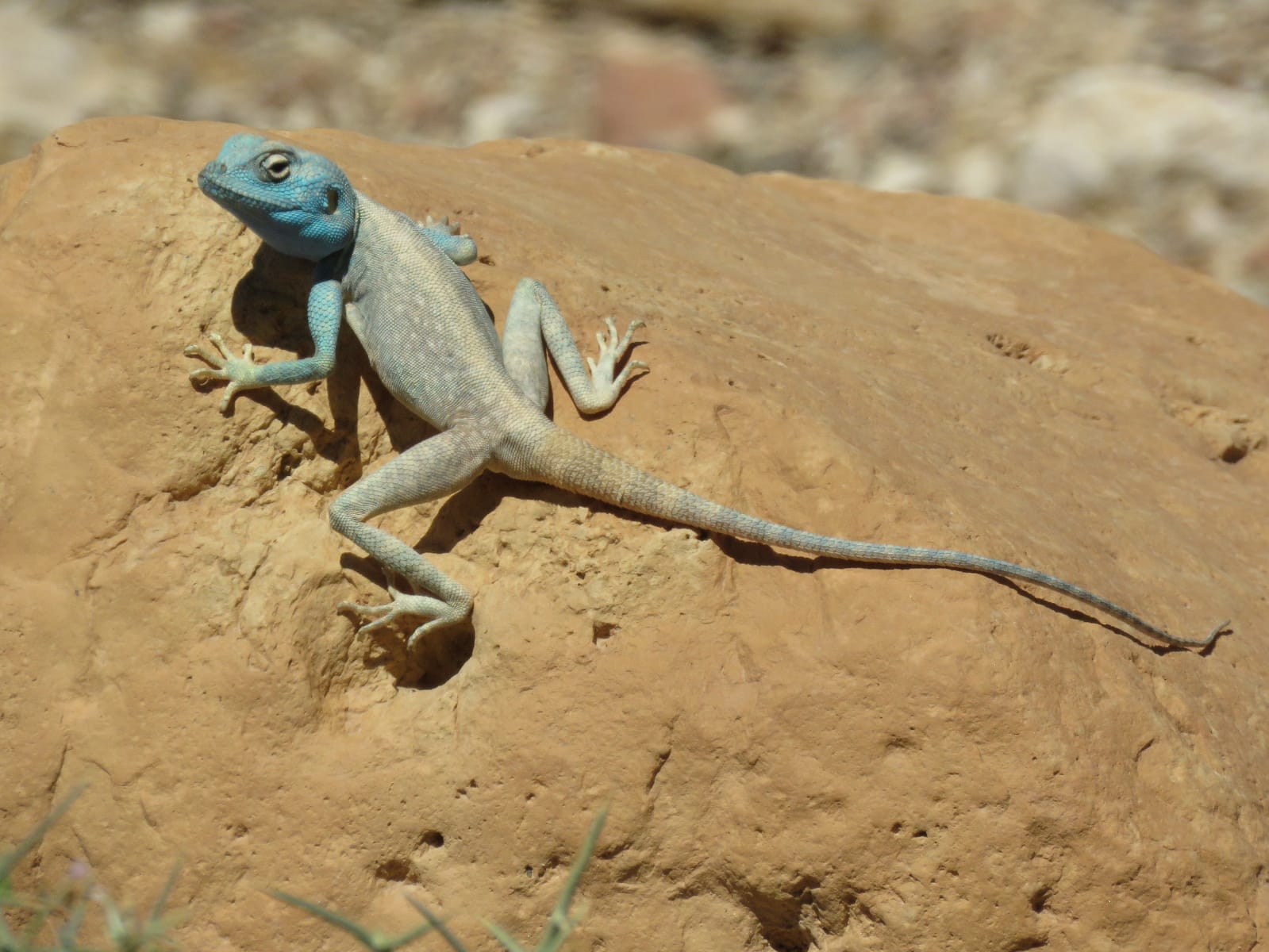
As part of his role in the Authority al-Atrash runs classes in Bedouin schools to heighten awareness regarding those topics. "It’s amazing to see the kids cooperating, happy and receptive to this content when introduced by somebody from the same background as them. I show present slideshows, explain the situation, and break it down for them. It’s one of the most meaningful parts of the job.”
These are the stories that touch my heart, the saving of lives
Al-Atrash speaks of another significant aspect of his work – saving the lives of hikers who find themselves in danger inside the nature reserves. In addition to his work as a ranger, he volunteers with the Ein Gedi-Arad search and rescue service. “I served as a tracker in the IDF, so my expertise in this area together with my experience and work translate to numerous callouts to hikers in need of rescuing,” he says.
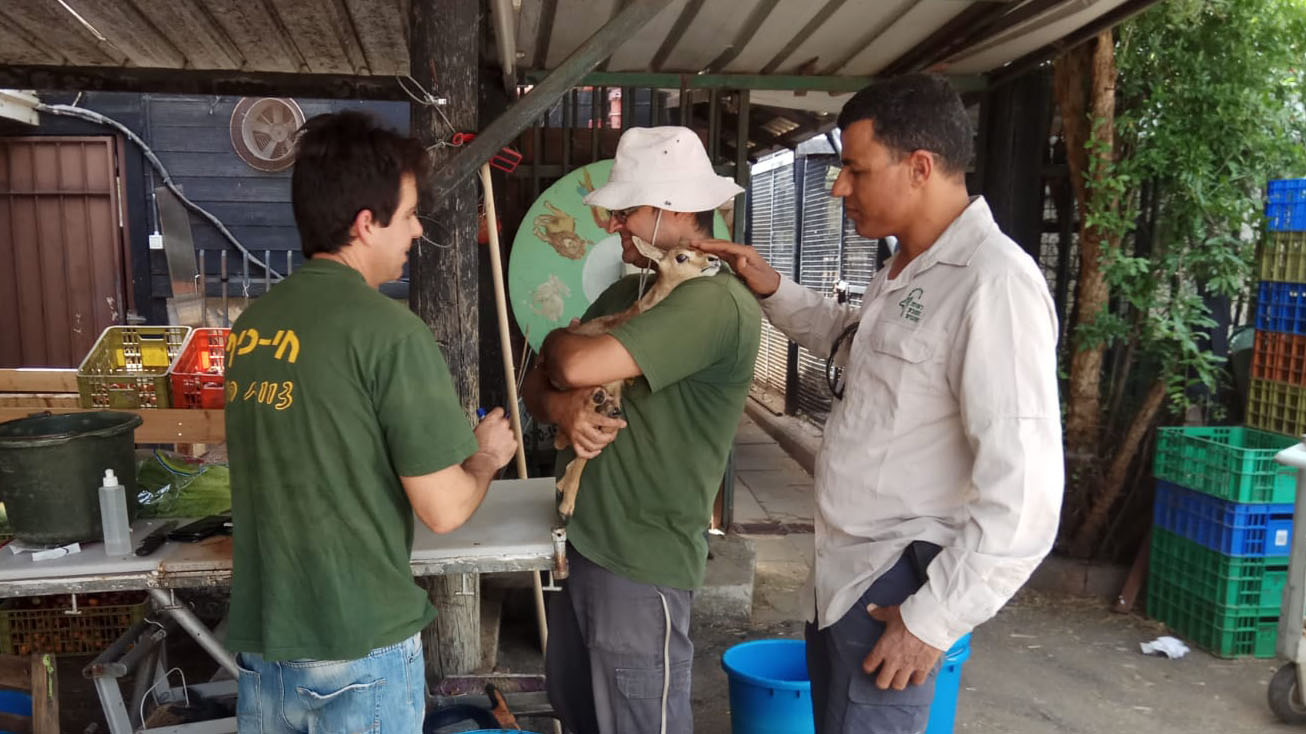
Sometimes even a helicopter equipped with state-of-the-art technology cannot replace a keen human eye and a deep affinity for the land. “One evening I was at a party at some friends in Ein Gedi, and at 11 p.m. I got a call saying that there were hikers in the Ein Gedi reserve who had been injured and couldn’t continue,” al-Atrash recounted. “It had been a sweltering day, and they were stuck on a cliff. A helicopter hovered above the area for two hours and wasn’t able to find them, because the boulders in the reserve were radiating heat and the thermal detection devices on the chopper couldn’t distinguish between rocks and human beings. I engaged my tracker sensibilities and attempted to pick up their trail. I found them an hour later, without water, in significant danger."
This time it ended well. "I linked them up with the idling helicopter and we executed the evacuation. These are the stories that touch my heart, the saving of lives – and that is something that I get all the time at work.”
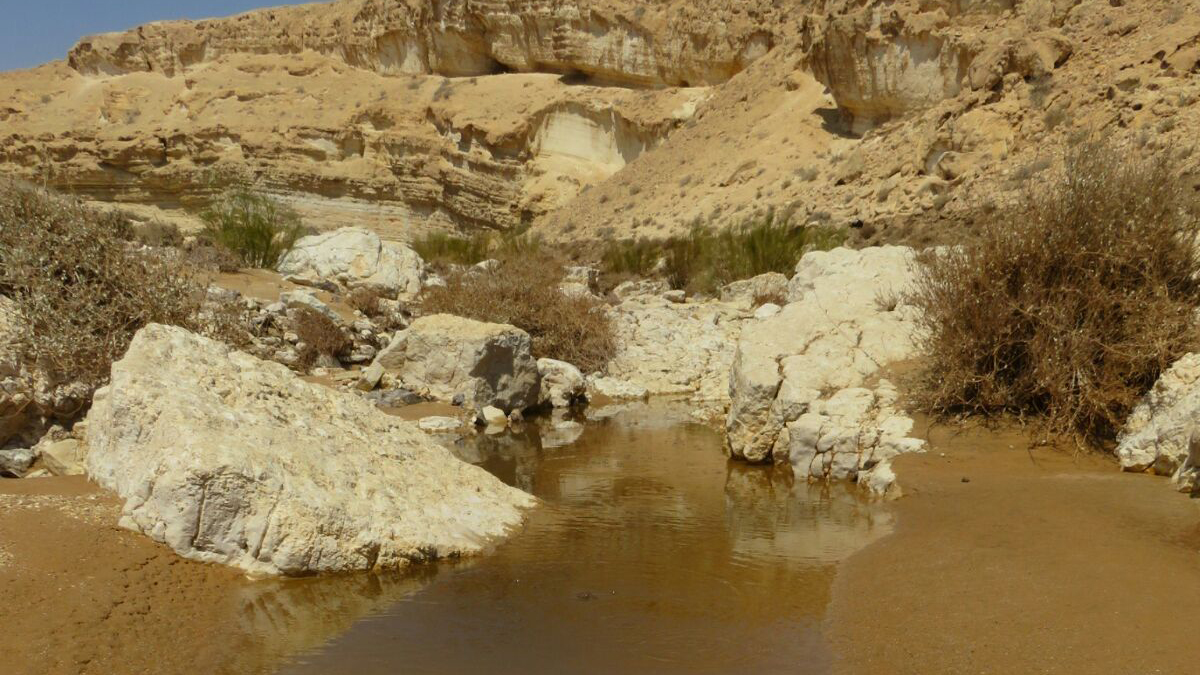
Al-Atrash shared that the secret of his strength lies in the positive attitude he brings to every encounter with other people. “My personal philosophy is to be a human being before everything. Human interactions are the key to the whole story. I approach people and engage them as equals. I haven’t encountered any racism. People are very happy to see me. Travelers and hikers are happy to have somebody local explain, and I sense the happiness in their eyes from my assistance. I hand out trash bags to make sure they keep the land clean and they are always positive. It amazes me and gives me strength.”
“The most important task is working with people”
For Ronit Rosen, 44, supervisor of the national park at Tel Ashkelon [in the South of Israel], debunking one particular myth is especially important. "There are a lot of people who think that all I do all day is stare at flowers and butterflies,” she says. “I work right next to the sea but I seldom get a chance to go down to the beach as a visitor because the work is very intensive and demanding, with a wide variety of tasks."
"The most important task is working with people – there are fifty members of staff and thousands of visitors." she explains. "The park stretches over three thousand dunams, including grassy areas, sand dunes, a beach and a camping ground. It means that there are many different types of work and teams that work evening and night shifts, and there are many different kinds of visitors – those who come for the beach, to have barbecues, or to see the archaeology.”
Occasionally the job involves confronting visitors who don’t respect the rules. “Our campground is defined as a Quiet Campground – no generators, music or dogs allowed. One Friday the shift manager called me at 10 p.m. to say that there was a guy who came in with a generator and a dog. The guy wasn’t prepared to take his dog and generator out of the campground and abide by the rules. He blocked the entrance to the campground with his vehicle and lied that the generator was for medical purposes even after we checked and saw that it was for a refrigerator. The staff member on duty was struggling to deal with the guy, who was physically large and making verbal threats. It took time for us to find the relevant ranger to issue him a fine and get him out of there. It took several hours and was very unpleasant for staff and for other visitors,” Rosen said.
Rosen lives in the Moshav of Heletz [near Ashkelon] and has been with the Nature and Parks Authority for ten years. “I came from a love of nature, which is sort of a family obsession,” she explains. “I started out as an educational coordinator and slowly I grew within the organization. We do such important work here, and the organization’s goals are also my own. I joined to run educational sessions in kindergartens in Ashkelon. The kids who participate in these instructional sessions have so much fun and learn so much that they hug the instructor at the end of the activity. For me that’s everything, that’s why I’m here. We teach them about the unique environment right on their doorstep and how special it is, as something that not everyone else has. If at the end of a session with kindergarten kids, they know who built the world’s oldest arch gate that’s here in the park, then that’s amazing. It fills them with pride, they will come back with their parents and then I know we’ve done our job.”
The world’s oldest arch, if you were wondering, is located right inside the Ashkelon national park and was built by the Canaanites in 1850 BCE.
United by nature
The Nature and Parks Authority has been operating in its current format since 1998, when two older bodies – the Nature Reserves Authority and the National Parks Authority – were merged. The organization has a permanent staff of 900 and another 800 seasonal workers at various sites across the country. Men make up 59% of staff and women 41%. Among all workers, 300 are employed as rangers and inspectors responsible for enforcing the laws and regulations that protect Israel’s natural environments and wildlife.
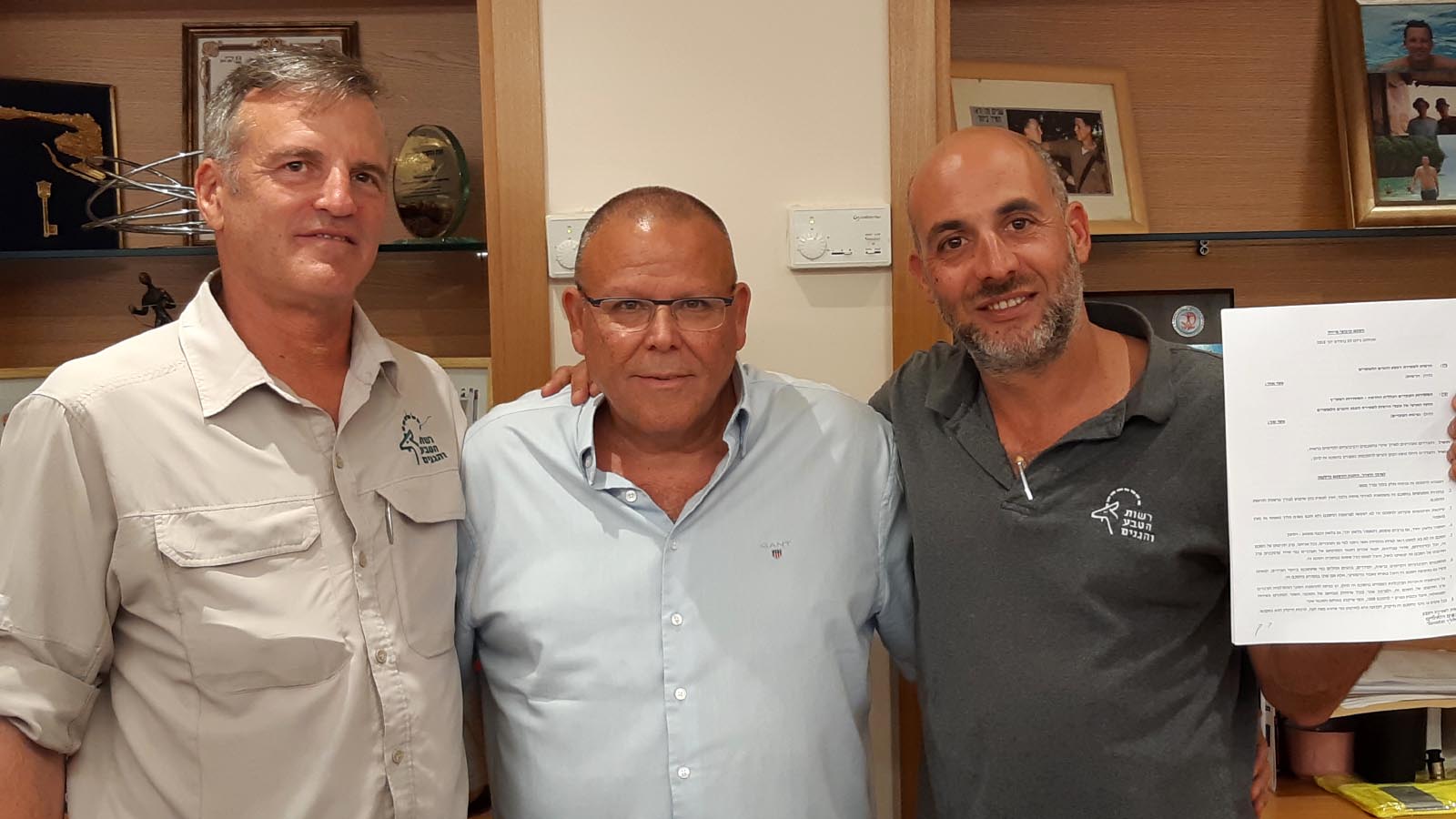
The authority’s workers are organized inside the Histadrut, the General Federation of Labor in Israel, and enjoy the benefits of a collective agreement of the workers' committee that represents them. The workers' committee has seven members who are responsible for all authority staff from Israel’s northern border down to Eilat. In addition to their time on the workers’ committee, each member also serves a role in the authority.
The committee chairman, Dudi Keren, explained how the committee enables workers to focus on their complicated tasks at hand, and know that their conditions and job security are being taken care of. “On the one hand, workers at the authority perform their jobs out of a sense of love and belief in what they do; on the other hand, we are an enforcement body: ‘the nature police.’ The fact that there is a union allows us to protect workers from external pressures and influences, so they can do their work in a true and honest fashion.”
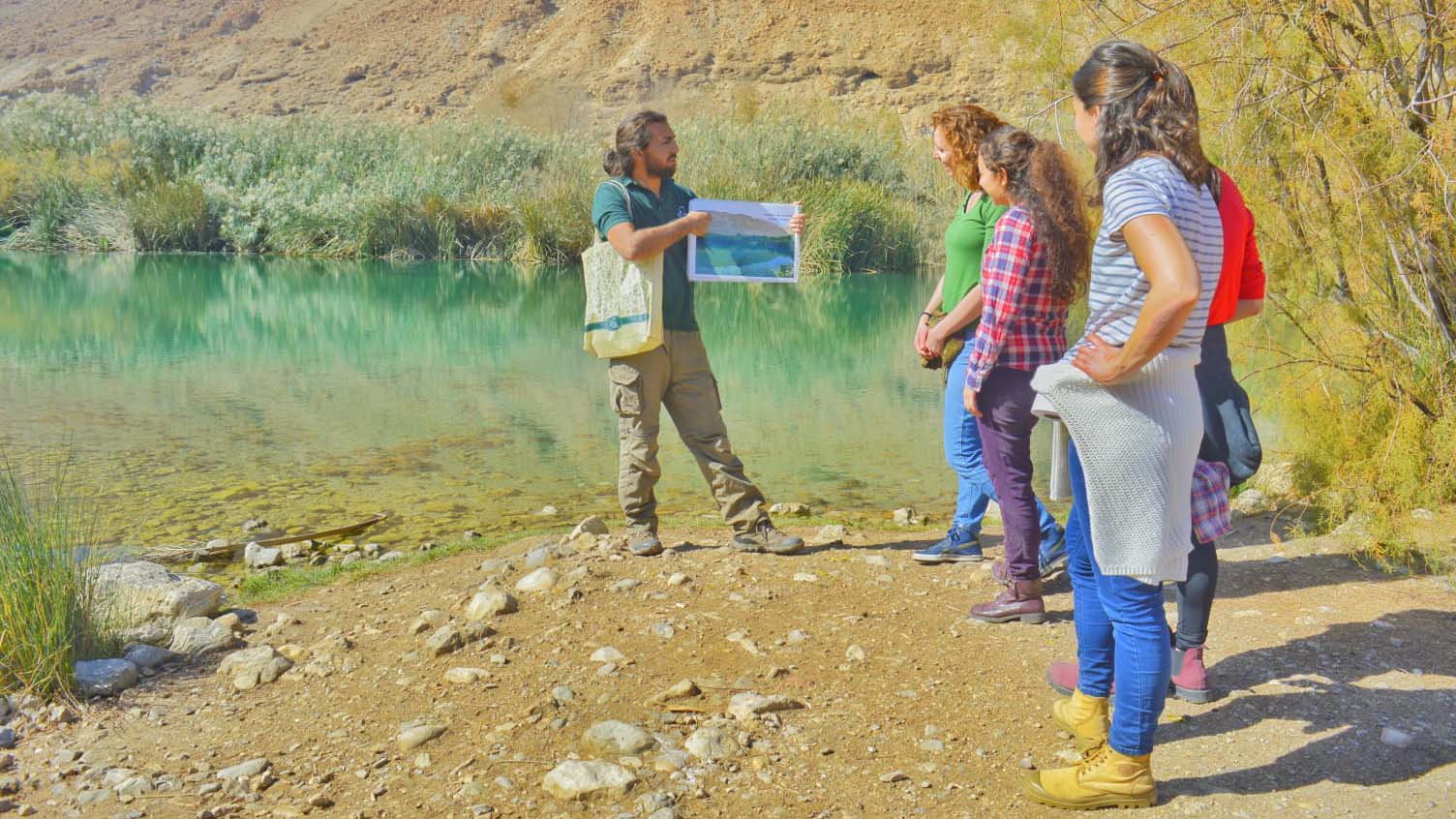
Keren added that “the work here is done with the knowledge that there can’t be any unilateral measures taken against the workers, and so we can do our jobs loyally, without political or other pressures.”



